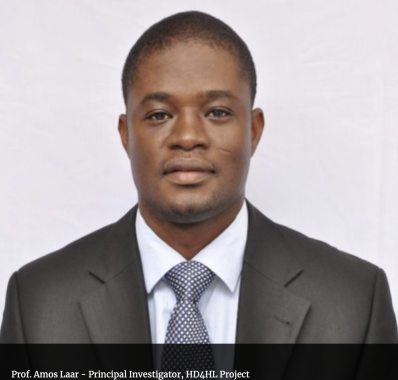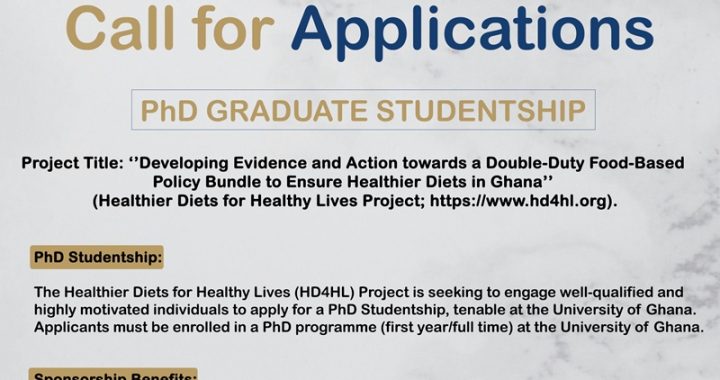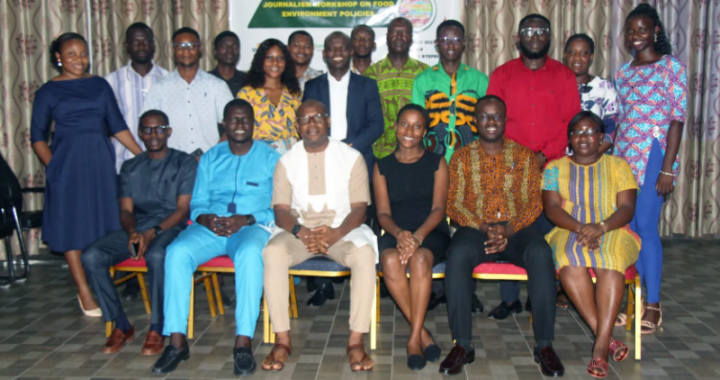Principal Investigator of the Healthier Diets for Healthy Lives (HD4HL) Project, Prof. Amos Laar has been lauded for his role in ensuring healthy food environments that facilitate progress in overcoming malnutrition as well as non-communicable diseases.
Delivering a solidarity message at the launch of the project on March 9, Dr. Sam Oti, a senior program specialist with the Global Health Division of International Development Research Centre, (IDRC-Canada) said the initiative is expedient and will go a long way to prevent malnutrition and non-communicable diseases.
“We are very supportive of Prof. Laar’s project because it seeks to address critical issue of the double burden of malnutrition in Ghana and aims to build evidence and mobilize multi-stakeholder actions towards a policy bundle for healthier and more equitable food environments,”
“We were very excited, when Prof. Laar brought this project to us, at the potential for transformative change and we encouraged him to be bold, to go big and to aim for the stars. I am pleased to say that, he and his team have exceeded our expectations by bringing together this powerful coalition of government agencies, members of the academia and civil society organisations,” Dr. Oti said.
“As the saying goes, if you want to go fast, go alone, but if you want to go far, go together. We strongly believe that this coalition will go very far in terms of developing and implementing policies that will transform Ghana’s food system for the better and serve as an example for the rest of the African continent,” he added.
The Healthier Diets for Healthy Lives project seeks to develop evidence and action toward a double-duty food-based policy bundle to assure healthier diets in Ghana.
For the past 50 years, the IDRC has been investing in knowledge, innovations and solutions to some of the most pressing development challenges in lower and middle-income countries.
According to the international organisation, the HD4HL is one of the several investments aimed at catalysing change for healthier, more equitable, and more sustainable food systems in the developing world.
It is also one of several projects within a multi-million-dollar research funding partnership between IDRC and Rockefeller Foundation.
The project will develop, validate, and build consensus for a fit-for-local- purpose nutrient profiling system that allows for open, transparent categorization of foods and the determination of how policies will apply to locally available foods in Ghana.
It also looks forward to generating and synthesising gender-responsive evidence on the impacts of policy actions aimed at equitably shifting the relative price, availability, procurement and marketing of healthy and unhealthy foods.
It will as well facilitate understanding of pathways for effective policy adoption, implementation and monitoring of outcomes for changing consumer food environments.
Mobilise and strengthen the capacity of a coalition of public, private and social sector stakeholders critical to the effective development and implementation of evidence-based food environment policies as well as strengthen collaboration and share evidence and experience regionally in order to set food policy standards for African nations that may be followed or improved upon.
Source: Newswire GH




